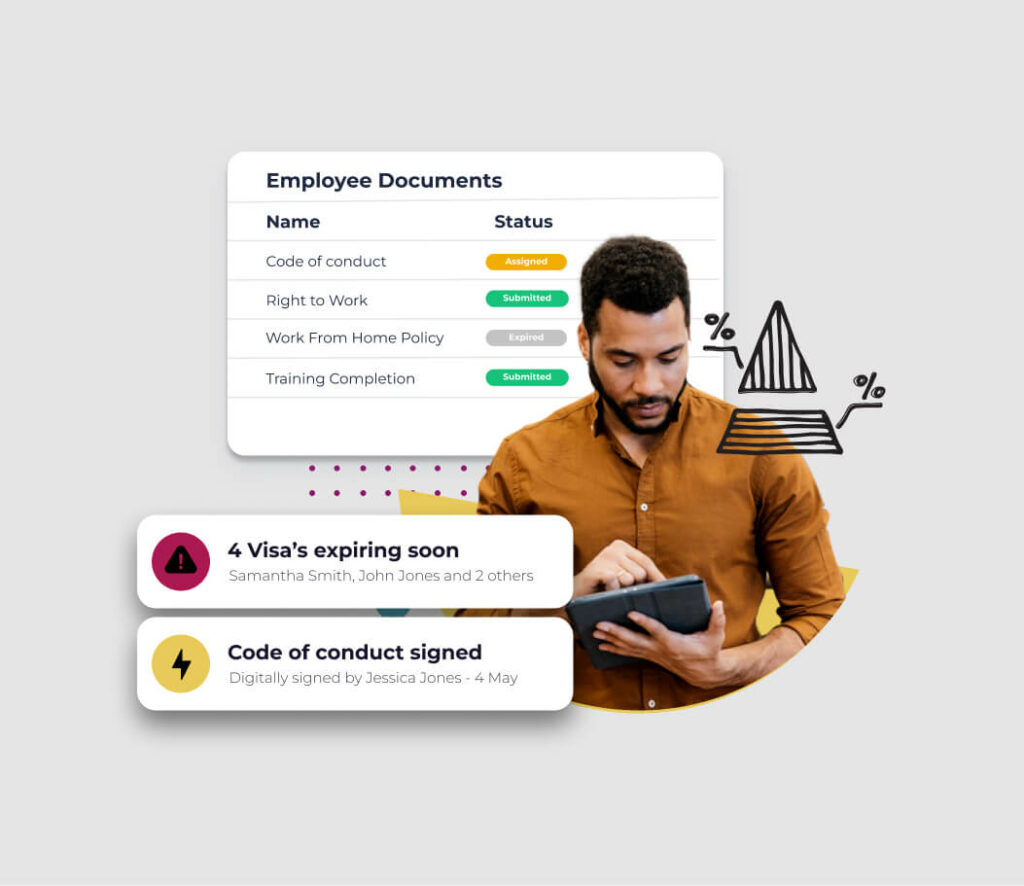Both the Fair Work Amendment (Secure Jobs, Better Pay) Bill 2022 and the Anti-Discrimination and Human Rights Legislation Amendment (Respect at Work) Act 2022 are now law, and will no doubt impact all employers and employees in Australia in some way.
As the sun sets on 2023 and we count down to the new year, it represents the perfect time to reflect and ensure you have implemented the changes and remain compliant.
To help, we have compiled a summary of these changes.
Why have the workplace law changes been made?
Australia’s industrial relations landscape is undergoing the biggest changes it’s seen in over a decade and with this comes new compliance requirements for employers. Not only do these legislative changes aim to deliver a fairer workplace relations system for Australian workers. They also seek to create job stability, fair pay gender equality and new protections for employees.
Summary of 2023 Australian workplace law changes
| Legislative change | Effective date | Summary of the new law |
|---|---|---|
| Gender equality | 6 December 2022 | Job security and gender equity are now primary objects of the FW Act. The premise is to promote fair wages and equal remuneration for work of equal value. The inclusion of gender equity as an object of the FW Act will set a clear expectation that the Fair Work Commission must take into account the need to achieve gender equity when performing all its functions, including in setting minimum wages, considering changes to awards, and in all other decisions it makes. The changes will be supported by establishing a pay equity expert panel and a caring and community sector expert panel within the FWC along with a dedicated research unit. |
| Anti-discrimination and special measures | 7 December 2022 | FW Act includes three new protected attributes at work including breastfeeding, gender identity, intersex status. This means employers are prohibited from taking adverse action against current or future employees because of these attributes. |
| Pay secrecy – right to disclose (or not disclose) | 7 December 2022 | In line with the primary objective of gender equity, there is now a new positive right for employees, as well as prospective employees, (regardless of any contractual term) to disclose (or not disclose) information concerning their own remuneration structure to others. A term in a contract or industrial instrument which seeks to prevent this will have no effect. Employers are prohibited from including such terms in a contract of employment. |
| Unlawful job advertisements | 7 January 2023 | Job advertisements can no longer include pay rates that would breach the Fair Work Act or a fair work instrument such as a modern award of enterprise agreement. |
| Paid family and domestic violence leave *other than small business. | 1 February 2023 | Paid right of 10 days non-cumulative family and domestic violence leave commences on 1 February 2023, and is now part of the National Employment Standards. |
| Prohibiting sexual harassment in connection with work | 6 March 2023 | The newly introduced provision in the FW Act will be modelled on the clause contained within the Sex Discrimination Act but will be slightly broader as it will extend to prospective workers. The provision will provide that a person (the first person) must not sexually harass another person (the second person) who is: > a worker in a business or undertaking; seeking to become a worker in a particular business or undertaking; or > a person conducting a business or undertaking; > if the harassment occurs in connection with the second person being a worker, person seeking to become a worker in a particular business or undertaking, or a person conducting a business or undertaking. The prohibition also includes sexual harassment perpetrated by third parties, such as customers or clients. |
| Flexible working arrangements | 6 June 2023 | From this date, the right to request flexible working arrangements will also apply to employees, or a member of their immediate family or household, experiencing family and domestic violence; and employees who are pregnant. Employers now have new obligations to follow before they can refuse a request from an employee for a flexible working arrangement. |
| Unpaid parental leave changes | 6 June 2023 | From this date, employers will have new requirements to follow when responding to employee’s requests for an extension of unpaid parental leave. > The employer must provide an employee a response within 21 days of an employee making a request to extend their unpaid parental leave. An employer can only refuse the request if: > the employer has discussed and genuinely tried to reach an agreement; > the employer has considered the consequences of the refusal; and > the refusal is on reasonable business grounds. |
| Pay secrecy terms in new contracts have no effect | 7 June 2023 | Pay secrecy terms inconsistent with the new workplace rights described above cannot be included in employment contracts or other written agreements that were entered into on or after 7 December 2022. For enterprise agreements, awards, or other fair work instruments, any pay secrecy terms have no effect and can’t be enforced after 7 December 2022. This applies regardless of whether the instrument was made before, on or after this date. |
| Paid family and domestic violence leave *small business | 1 August 2023 | Paid right 10 days non-cumulative commences 1 August 2023, now part of the National Employment Standards. |
| Limitations on fixed- term contracts | 6 December 2023 | Employees can now only be engaged pursuant to a fixed-term or maximum-term contract for a maximum of two years and such contracts for the same role can only be renewed once. This means if an employee is on a fixed-term contract for two years, you cannot extend this. However, if an employee is on a fixed-term contract for one year, you have the ability to extend this contract for an additional year. Learn more about these changes |
| Fixed-term contract information statement | 6 December 2023 | Fixed Term Contract Information Statement must be issued to employee. This is available from the Government website and Worknice in early December. |
How can mid to large sized businesses ensure employment compliance?
Worknice is designed for Australian mid to large businesses looking to control the HR paperwork chaos while automating compliance across the entire workforce. Below are a few technology based tools that help our current customers implement and manage all the workplace law changes that come now and in the future.
Ensure contract and leave compliance with approvals

Automated compliance alerts and reminders

Manage new or updated policy acknowledgement

Request a demo
Talk to us about your plans and discover how Worknice can help you automate compliance
Get a Demo


